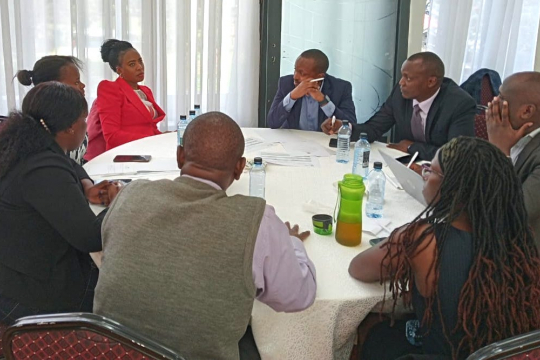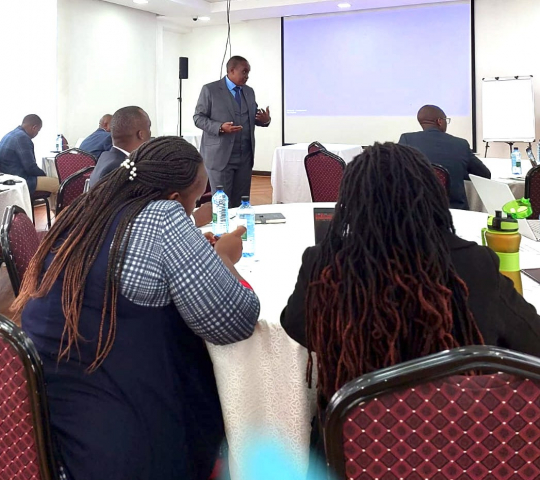A shift to a low-carbon economy is urgent. Such a shift can create new jobs for people but may lead to unemployment and poverty for others. EfD Kenya organized a high-level stakeholder workshop on April 4th to discuss solutions for a just transition in the areas of transportation, waste, and energy.
Professor Richard Mulwa, the director of EfD Kenya, presented his most recently published report on just transition which he co-authored with Elly Musembi and Margaret Maina, Incorporating Just Transitions in Kenya’s Low-Carbon Economy Development Path. He stressed the importance of considering the disadvantaged in the move to a net zero carbon transition to avoid driving many people into poverty.
The report highlighted that government interventions, like the Bus Rapid Transit in Nairobi and a shift to electric cars, may cause matatu operators and gas station staff to lose their jobs. it is crucial to put these workers’ interests at the heart of the just transition as some do not have any coping plans.
Electricity company offers training
Representatives from the Kenya Electricity Generating Company, KenGen, explained that they are currently decommissioning thermal plants in Muhoroni and Garissa to reduce carbon emissions and offer green energy by 2030. To guarantee that the shift to a low-carbon economy is fair, they are offering training and information on renewable energy and incorporating communities in development.
Participants in the waste sector put forth the great risk of loss of livelihoods for individuals residing in and around the dumpsites, as well as the loss of shelter when the dumpsites are cleared. To solve this problem, they suggested placing Material Recovery Facilities (MRFs) at the location of the cleared dumpsites.
Members of the transportation industry said they intended to rehire matatu conductors and drivers to operate the 140-passenger BRT buses, as well as to hire them to provide cleaning services and work in the BRT bus depots.
Quick wins of achieving low carbon
Various ideas were discussed during the meeting on accelerating the low-carbon transition. Some of the cross-cutting issues across the three sectors included increasing visibility through extensive communication of just transition, capacity building such as training of trainers, and conducting research that addresses the real gaps. There were also discussions of creating an enabling environment by the government in terms of tax policy that is predictable over long periods, and investment directed not only for profit but also to achieve some expected impact.
Participants include:
|
Energy Sectors: |
Matatu Sectors: |
Waste Sectors: |
Other Sectors: |
|
Kengen |
State Department of Transport. |
Vintz plastics ltd |
Nairobi water |
|
Ministry of Energy (MOE) |
Matatu owners’ association |
Clean up Kenya |
254YPC |
|
HDF energy |
Namata |
Kenya association of waste recyclers |
Global strategic communication control |
|
Koko networks |
|
Nairobi city county |
Nairobi water |
|
KPLC |
|
|
254YPC |
By Jane Maina

